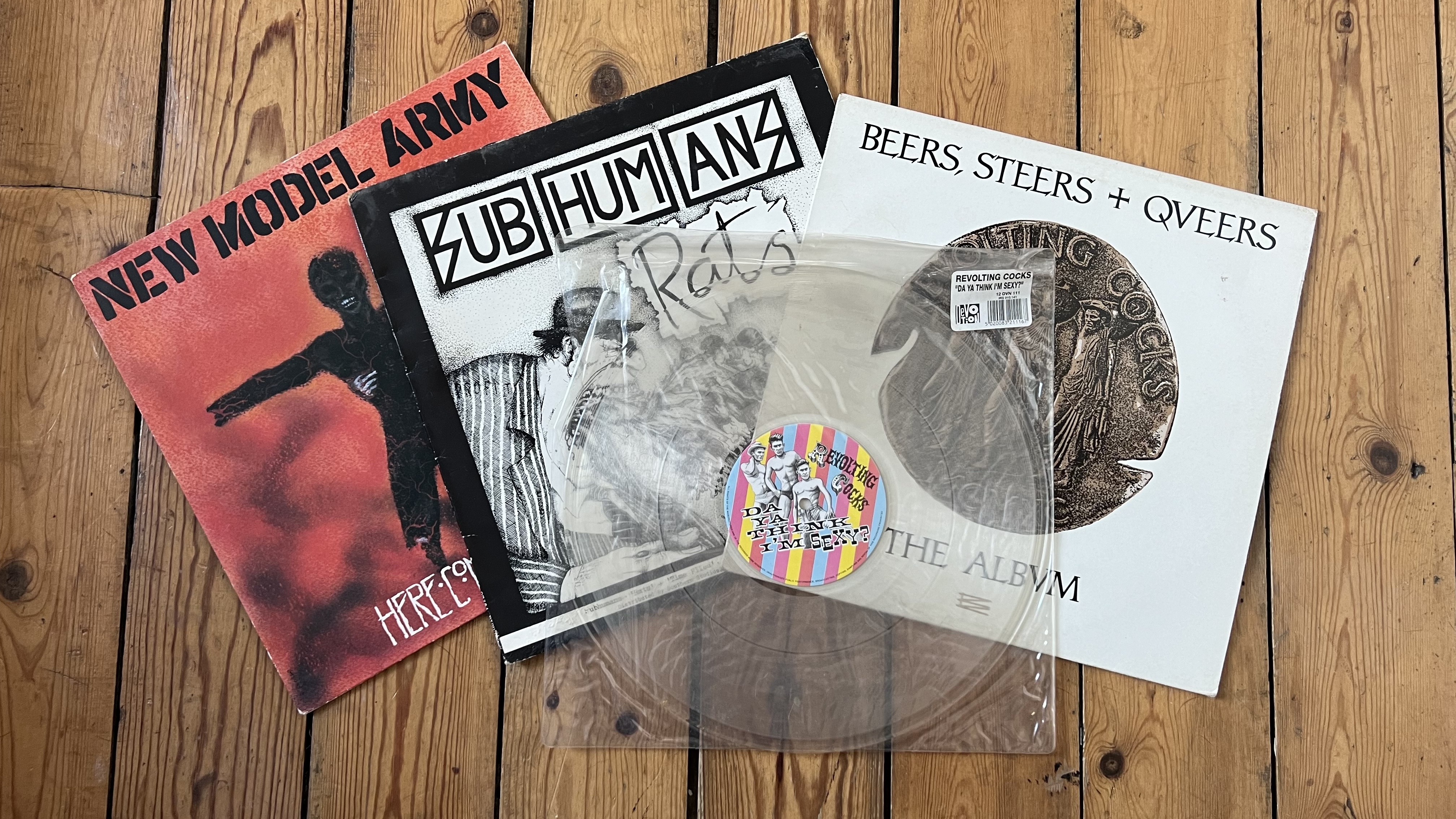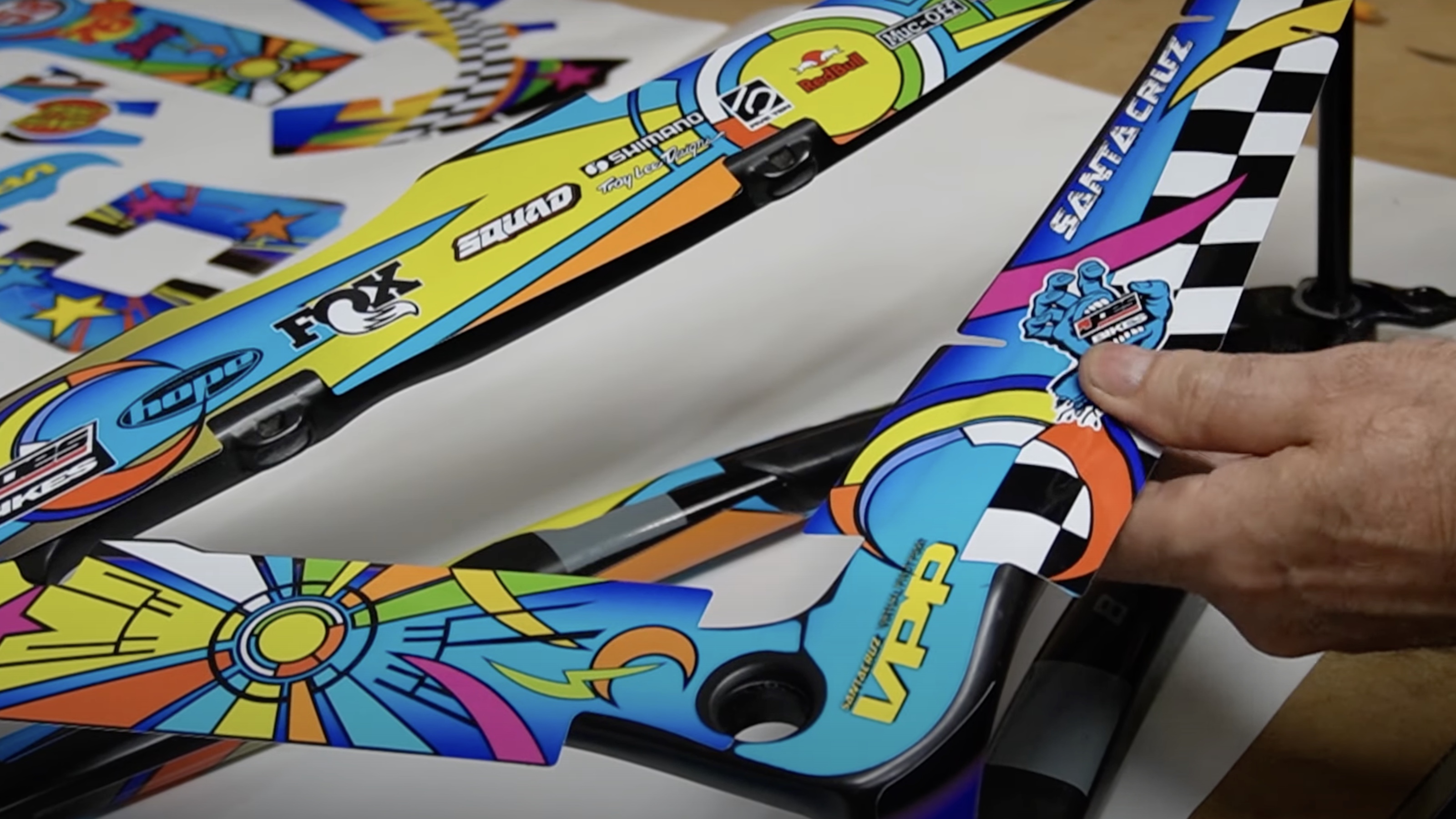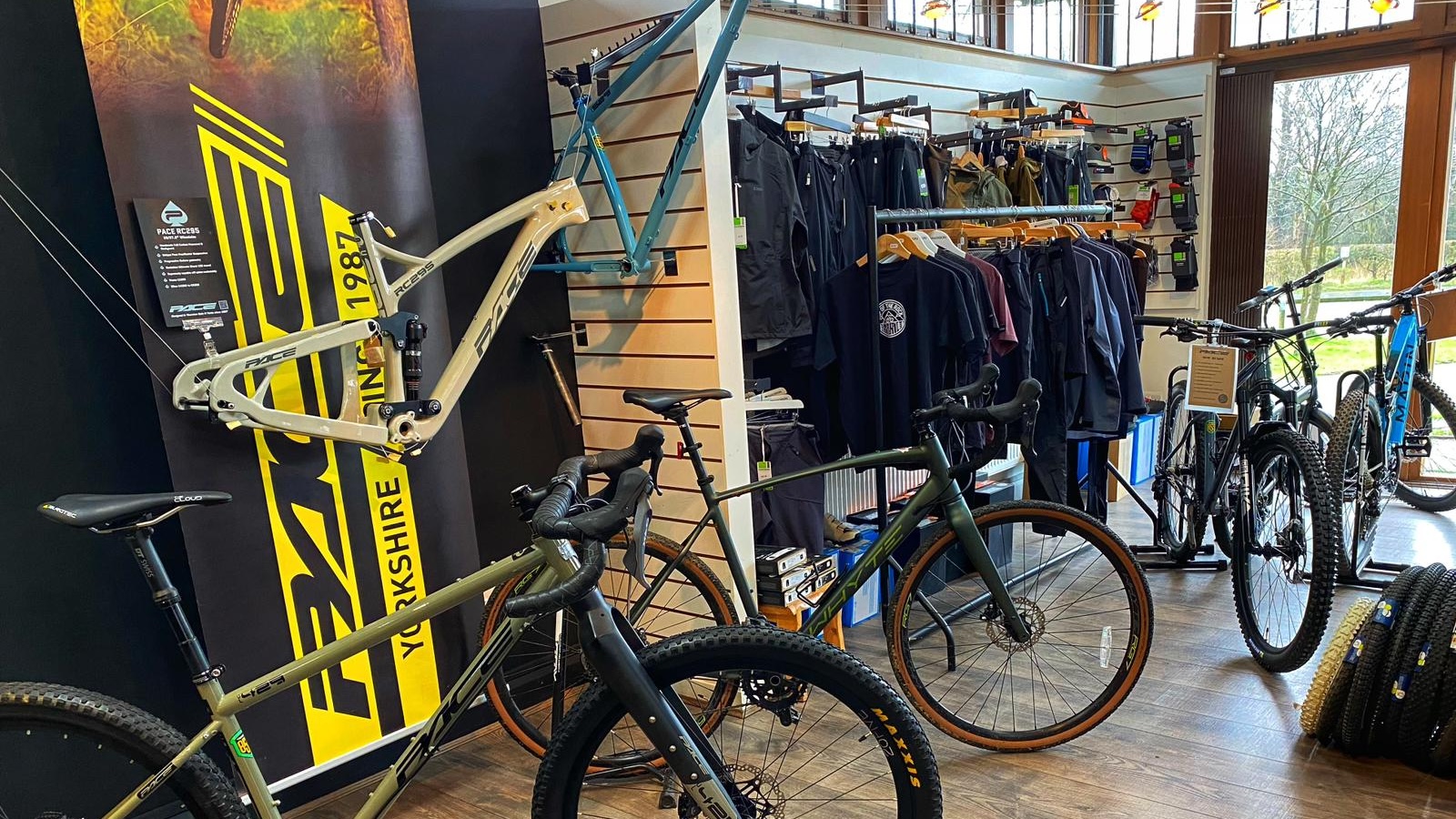
I read an interesting feature online the other day, talking about how after literally decades of decline, record shops – for those under forty, that’s shops selling music pressed into vinyl discs – are flourishing again. And I immediately thought I wonder if that’s the future for the specialist end of the bike market and the shops that serve us.
The downward spiral
There are certainly a lot of parallels between the bike industry now and the music industry as it was around twenty years ago. There had already been a lot of changes to how music was being sold in the previous decades. Larger high-street chain stores concentrating mostly on popular music had already started dominating the market.
Some like Virgin and HMV were offshoots of record labels themselves and although they didn’t sell only their own artists, I’d imagine there was some preferential presentation going on. If you were after the likes of the latest Subhumanz 12-inch (their live LP 'Time flies but Aeroplanes Crash' is still the best record title ever in my opinion), you still had to squeeze into a tiny shop on a backstreet as though you were buying vice-loaded VHS tapes.
The dominance of the big chain stores was already having a devastating effect on those little record shops before CDs made shipping music easier and the internet made shopping for it easier still. Then streaming appeared as the internet equivalent of bootleg tapes – before being seized by the likes of Spotify and Apple Music and becoming the dominant way for most people to consume music.
That marked a real split in how music was funded and created as corporations handled the big business and smaller bands and labels tried to survive on the scraps left behind catering for specialist genres.
But those little independent shops scraped by on ingenuity and personality. Some chose to serve specialist genres. Some worked super hard to create live events such as signings or intimate in-store concerts. Others uprooted large chunks of their precious collections and went out to meet new customers at record fairs or festivals. In short, they hustled damn hard and through their efforts they created communities that could support them – essentially adding enough experiential value so that people would happily pay properly for music and merch to keep the shops and bands alive.

Vinyl revival
Now kids who’ve lived entirely in a world of digital music are backtracking to more primitive technologies and more primal experiences. In the past few years, it’s become cool for students and teenagers to spend hours shoulder-to-shoulder with vinyl veterans. Flicking through racks of slim sleeves to catch a glimpse of the rare records thereafter. Artists now release songs or albums specifically to feed the growing queues that form outside those little back street shops on ‘independent music store day’.
Rich, our editor here at Bike Perfect, just told me how his 12-year-old son recently asked him if he had any cassettes he could listen to. My own daughters were delighted to find all my old vinyl in the loft after borrowing a record player from my parents. It should be noted that my wife was less delighted at the content now spewing forth from the steadily spinning discs though, and some only came out of the attic when we knew she was well out of earshot.
Eager to jump on any available bandwagon, mainstream artists started doing limited edition vinyl and cassette releases. In the same way, people buy re–issue Metallica and Megadeth T-shirts in Primark without having any idea who Lars Ullrich and Dave Mustaine are. And now we’re in the situation where those little record shops are finally doing well again thanks to a whole new raft of people. Some just want to look cool, but others generally appreciate the totally different experience of reverentially un-sleeving a delicate disc and playing tracks sequentially and often imperfectly at 33 or 45 rpm. Not just mashing up chapters from different carefully written stories at whatever their broadband or 5G speed is.

Big changes in bike business
But what on earth does this have to do with bike shops and bike selling? I hear the few people who’ve been patient enough to trudge this far with me ask. Well, I think the bike industry is on the brink of a massive phase of consolidation and ‘right-sizing’ to use the phrase Trek described news of a 40 percent range shrink as. In fact, I think it’s absolutely vital that we lose a lot of the ‘little added value’ middle-ground brands and products where much of the current pricing instability and overstock problems originate from.
I think e-MTB will be a real catalyst for this too by bringing in major motoring or electrical brands rather than them just being suppliers too. That’ll further change the landscape of bike retail as they’ll presumably bring the main dealer, official servicing for warranty models from motoring and white goods sales with them. Something that’s already happening via increasing numbers of brand-owned stores, but on a much bigger scale.
While this might sound like a disaster for our pernickety world of pedantic bike perving where we think every tiny detail matters, I think it’ll be really good for cycling as a whole. Motor and electrical brand familiarity and simple product ranges based on maximum convenience not minimal gains performance will attract a lot more ‘normal people’ than a world full of companies and complexities they’ve never heard of. With the world’s most successful road team now rebranded as ‘Lease A Bike’, it can’t be long before people aren’t actually owning their bikes in the same way as most people don’t own their cars.
Those big companies will have the budget to grow and support the sport itself, not just squabble among themselves. Positive marketing of mountain biking as a sport – as opposed to just marketing individual brands – investing in advocacy, supporting the building of the trails we actually ride on etc. Again, something major bike brands like Trek, Specialized and Santa Cruz are already doing, but on a wholly different ‘powerful enough to sway government strategy’ scale.
And as the mainstream cycling world moves forward with a handful of brands, producing a handful of different bikes each, maybe in a couple of different sizes but maybe not (motorbikes do fine with a one-size-fits-all-all policy), what will be left? For sure, there will be a lot of casualties in terms of people, brands and shops and that's not great news. However, I also think it'll leave space for the bike shop equivalent of record shops to survive and then thrive.

Be outstanding to stay standing
I can see that happening already in who's doing well in the current crisis climate. Local to me Prologue and Moonglu organize their own riding clubs while Chevin create social evenings to increase their customer base directly. Other shops specialize in a specific sort of riding or part of the demographic that works with their location. Or develop the skills and reputation for custom builds, suspension tuning, wheel building or personal paint job and/or sticker makeovers to create genuinely bespoke bikes. Some like Trailhead are even mini distributors for small brands such as PNW while 18 Bikes make their own frames in the Peak District. Dales Bike Centre is as famous for its cakes, eco B&B and expert guiding knowledge as it is for its bike hire and on-site shop.
I can see these ideas extending to a single brand or maybe even a single material fan space ‘destination experiences’. Mini temples to slim tubes where you’ll be able to flick through racks of steel frames as you’d flick through records. Carbon fiber or alloy specialists who'll curate a selection of stand-out options based on their own experience and detailed knowledge.
Customers will then get expert help on what to build them up with from on-hand staff. Staff with the experience and genuine enthusiasm to create something special and suitable that’ll work perfectly for a customer they’ve gone to the trouble of really learning about. Not just fobbing them off with a Frankenbike made up of whatever bits have been getting dusty in the back room.
I think there’d be a big space here for reputable second-hand bike sellers too. Where you could buy bikes with a history that doesn’t involve a broken lock or a busted garage door and where thorough checks would convert into warranties worth having. The list could go on, but what I mean is, shops that add enough value to the shopping and customer experience to justify the increased cost over exclusively online or concept store prices.
And I don’t know about you, but that sounds exactly like the kind of shop I’d go and spend time and money in. They might even be cool enough to get Rich’s son or my daughters to hang out there and begin their own journey into esoteric biking.







